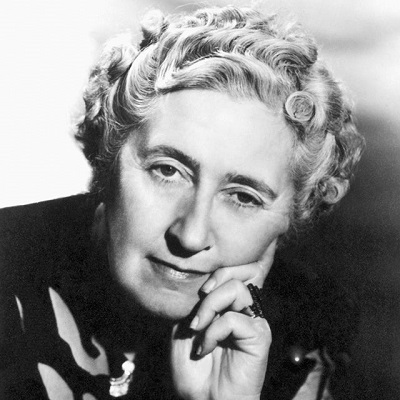I was intrigued by Agatha Christies’ life, a mysterious woman behind the most famous literary mysteries. Therefore, let us begin this trip whereby we shall discover the turning points in her life, the literary successes she achieved, and how her unique style gave birth to a new genre in the world of detection fiction writing.
Agatha Christie Biography:
Early Years and Influences:
Agatha came into this world on September 15th, 1890, in Torquay, Devon, England. As I discover that she was a child raised amongst the luxuries of a Victorian-age household, my attraction only grows. Agatha’s mother Clara Boehmer helped her develop the ability to enjoy reading and create stories through reading which shaped their future journey.
Marriage, World War I, and Nursing:
In my exploration, therefore, this story changes dramatically when he marries Colonel Archibold Christie in 1914. The war that transformed the world begins with Agatha volunteering as a nurse and working in a hospital dispensary. The war branded her mind, which became one of the features in her post-war works.
Emergence of Hercule Poirot and Miss Marple:
It is exciting to watch the birth of the precise Belgian detective named Hercule Poirot in “The Mysterious Affair at Styles” (1920). Agatha introduced her first character that would become iconic. This gave people a chance to understand how great an author is. “The Murder at the Vicarage” has a very interesting plot with the addition of smart amateur sleuth Miss Marple. This group of characters developed a unique way of solving mysteries and it formed the basis on which Agatha wrote her mystery books.
Personal Challenges and Mysterious Disappearances:
Things get even darker for Agatha as her story unwinds. Her personal life suffered a dark cloud due to her divorce and the death of her mother. However, it intensified after the mystical and highly advertised disappearance of 1926. The world waited for eleven days before Agatha could be found. And indeed, she came back, but the enigma of her absence adds an extra twist to her story itself.
Literary Legacy and Later Years:
Worse still, Agatha’s own story becomes even more grim and depressing. The divorce and death of her mother cast a shadow over her personal life. This, however, increased after the mythical and highly publicized disappearance of 1926. It took a total of eleven days in the world before they could locate Agatha. However, she did come back and that becomes just another paradox in her tale.
Highlights of Her Literary Achievements:
Pioneering Detective Fiction:
Marvel at Agatha’s unsurpassed contribution to detection fiction in my person. She revolutionized mystery writing with her unique plots that were unforgettable, creative characters that stood out, and plot surprises. She has brought forth Hercule Poirot and Miss Marple (who are both brilliant in characterization), giving her literary pieces an evergreen status.
Record-Breaking Sales:
However, as I reminisce on Agatha’s literary accomplishments; my mind is taken aback by her incredible sales statistics. She has written her classics such as “Murder on The Orient Express”, “Death on the Nile” and “And Then There Was None”. They can remain popular for long periods and their readership cuts across generations.
Longevity and Adaptations:
This story starts with the development of many films, TV shows, and stage plays based on Agatha’s books. Her mysteries have been passed down through time and remain relevant as modern interpretations. It is an indication of how timelessly captivating her saga of suspense remains.
Guinness World Records:
First, Agatha herself has made it into the pages of the Guinness World Records. The universal nature of her storytelling is evidenced by her being a top-selling fiction author of all time around the world. Her enormous fame was demonstrated by the extent of her literary impact.
Books in Order:
The late Agatha Christie, who is sometimes called the Queen of Crime, has created numerous excellent mysteries. While opinions on the best Agatha Christie books may vary, here are some of her most acclaimed and beloved works:
- “And Then There Were None” (1939): This is her widely acknowledged masterpiece, narrating about a bunch who landed on an island only to be charged with their past offenses. It is a classic because of its suspenseful plot and surprises.
- “Murder on the Orient Express” (1934): The story about the wealthy Orient Express where Hercule Poirot investigates murder ends with its challenging definition of justice. It is among her most famous works and is known for its clever plot.
- “The Murder of Roger Ackroyd” (1926): This is a novel that broke some ground and changed the mystery genre while using an unusual point of view and ending with a startling twist. It’s a must-read for any Christie fan.
- “Death on the Nile” (1937): The story is set on a river cruise along the Nile of Egypt and revolves around a murder that Poirot investigates. It is so captivating because of its exotic setting, complex characters, and clever and detailed plot.
- “The ABC Murders” (1936): A set of murders committed according to the alphabet leads Poirot to take on the case. In this respect, it highlights why Christie is a master at plotting complicated scenarios with unexpected twists.
- “Evil Under the Sun” (1941): Poirot investigates a murder that takes place in a vacation resort as he explores complicated issues around relationships and what it means to be human. This, coupled with the fact that it is set in the wilderness of Virginia, really adds to the excitement and tension.
- “The Andover Tragedy” (1936): Short stories about Poirot illustrating Christie’s skills in creating memorable whodunits.

Writing Style and Reputation:
The Christie Formula:
Plotting, complex puzzles, and the psychology of her characters are characteristic aspects of Agatha Christie’s writing style. Mostly her books have the same set-up, they start by introducing her characters then there is an unfathomable puzzle only for it to be resolved at the last bit leaving no questions unanswered. This formula is constant but not boring thanks to Christie who introduces something new in all her stories.
Psychological Insight:
In essence, one of Christie’s strongest is her ability to understand people. Her characters are not mere pawns in a chess game with motivations, secrets, and weaknesses. Christie’s examination of the human mind gives her mysteries an extra dimension and elevates them beyond mere riddles.
Red Herrings and Misdirection:
When it comes to distracting the reader’s focus away from the actual solution, Christie excelled in using red herrings. A distinguishing feature in her writing style is her talent for dropping mild hints and misleading readers in unpredictable directions. The revelations at the end of each novel are meant to be surprising yet satisfying.
Variety of Settings:
Most of Christie’s works were created either in the settings of the English countryside or small villages, and yet this writer has managed to move her audience into completely different locations. Through the opulent settings of “Death on the Nile” and the cramped space of “Murder on the Orient Express,” Christie’s works demonstrate her skills at building up atmosphere or scenery.
Dialogue and Characterization:
This conversation of Christie’s is crisp and packed with undertones. How do characters talk to each other and what do they tell us, or keep back, concerning the revelation of the mystery? The author gives each character a unique tone which contributes to the story’s depth.
Legacy and Influence:
The contribution of Agatha Christie to the mystery genre is unquantifiable. Her writing style has inspired many authors, and she is still an object of study in a multitude of literary disciplines. She invented “whodunit” construction, which is an established element of mystery writing today, and her name still inspires modern crime novelists.
Agatha Christie Disappearance:
The enigma associated with Agatha Christie’s disappearance contributes an additional element of curiosity regarding her personality. Going through those eleven days in 1926 as it was in the life enigma that temporarily ruined her career is fascinating. All of these mysteries only increase the intrigue behind her disappearance, whether it was due to private problems or a skillfully organized PR act. Agatha Christie’s disappearance may have been deliberate or accidental but certainly another interesting page in her biography and not simply a great writer.
Conclusion:
The life of Agatha Christie, who is an exceptional novelist, was characterized by struggles, missing episodes, and mystery, thereby etching a scar in the book genre. From her pioneering contributions to her evergreen story-saying that remains the toast of posterity, her characters such as Hercule Poirot and Miss Marple still hold on to their audience’s hearts from generation to generation. Her disappearance mystery makes it more interesting. On the other hand, among the best works are “And Then There Weren’t None”, “Murder on the Orient Express” and “The Murder of Roger Ackroyd.” This proves that she is exceptionally able to construct intrigues and personalize figures. A chronological look at the order of her books gives insights into how this author grew up in telling stories. The legacy of the late Agatha Christie in the realm of crime still lives on, making her worthy of being referred to as the queen in this area and a literary icon for posterity.
